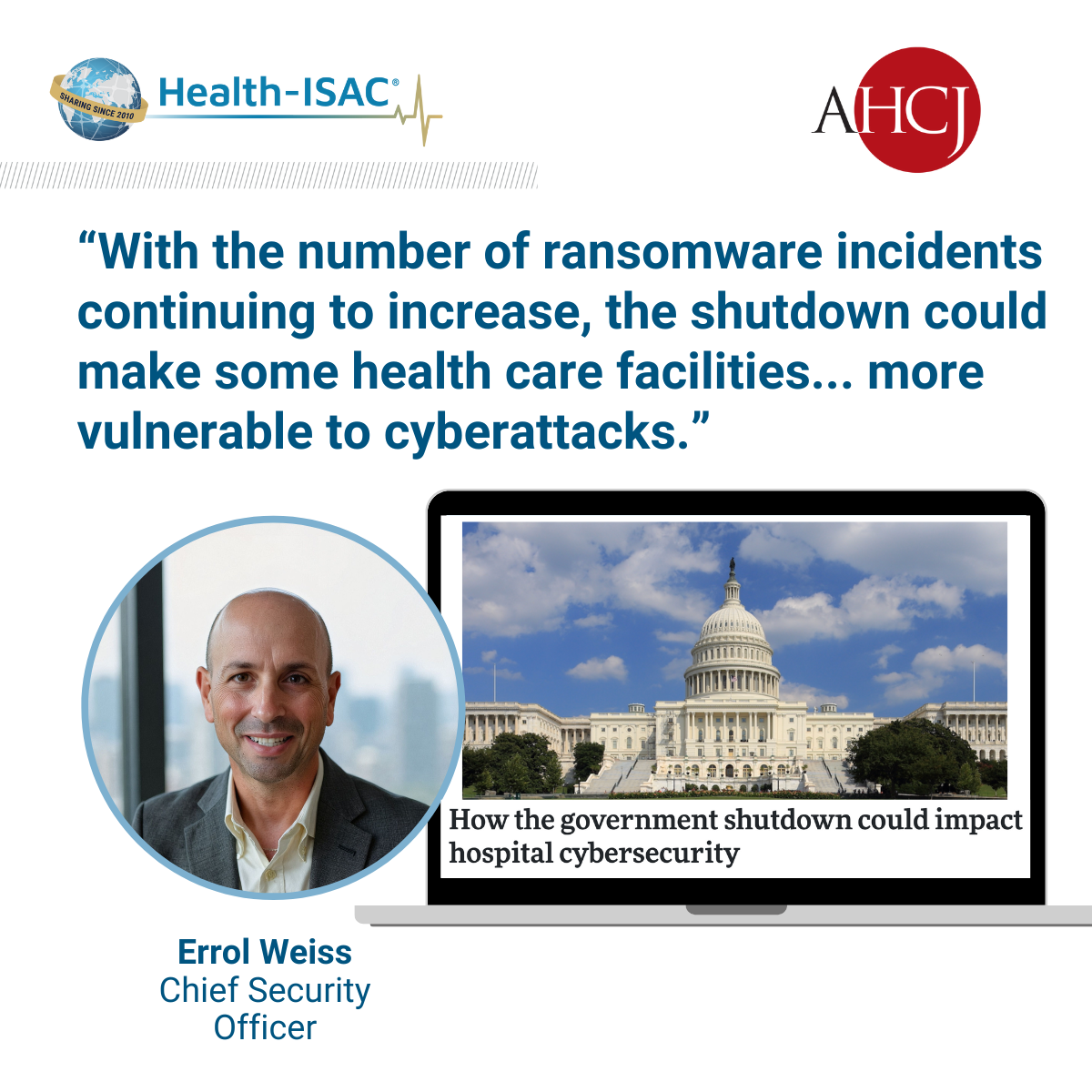Heightened Cybersecurity Risks Amid Government Shutdown: A Looming Threat for Hospitals
As the government shutdown persists, a growing concern emerges within the healthcare sector: an increased threat of cyberattacks, particularly ransomware, targeting hospitals across the nation. This development is especially alarming for smaller healthcare facilities that heavily depend on government resources for their cybersecurity needs.
The Rising Danger of Ransomware Attacks
According to a blog post by 3B Healthcare published on October 8, the ongoing shutdown has left many hospitals vulnerable to malicious cyber threats. The longer the impasse continues, the greater the likelihood that hospitals could face ransomware attacks, which can jeopardize patient safety. Not only does this pose serious risks for individual patients, but it also impacts the overall functioning of healthcare systems, potentially delaying essential services.
The Impact of Lapsed Legislation on Threat Intelligence
With government legislation lapsed, cybersecurity experts worry that vital threat intelligence information will experience a significant slowdown. Lawmakers and security analysts are particularly concerned about decreasing communication on emerging cyber threats, ultimately leaving many health systems in a vulnerable state. According to reports, some organizations may hesitate to share critical information without the legal protections provided by the 2015 Cybersecurity Information Sharing Act (CISA).
In the face of these challenges, the Health Information Sharing and Analysis Center (Health-ISAC) offers a ray of hope. This nonprofit organization provides healthcare entities with access to threat intelligence and best practices, helping to bridge the information gap that arises during uncertain times.
Vulnerabilities in Smaller Healthcare Facilities
Smaller hospitals and clinics, which often lack extensive in-house cybersecurity personnel and budgets, are particularly susceptible to these cyber threats. Errol Weiss, the chief security officer at Health-ISAC, highlighted this vulnerability in a discussion with BankInfoSecurity. He noted that smaller facilities commonly rely on free federal resources, such as CISA’s Cyber Hygiene scanning service, to bolster their cybersecurity defenses.
When these resources are unavailable due to the government shutdown, smaller healthcare facilities find themselves exposed. The absence of adequate support can leave them scrambling to safeguard against increasingly sophisticated cyberattacks.
Broader Risks Affecting Medical Device Manufacturers
The cybersecurity risks extend beyond hospitals and clinics. Medical device manufacturers and health IT providers are also at risk, as they rely on federal agencies for regulatory guidance. During a government shutdown, communication regarding software patches and updates can stall, posing significant risks to the security of their products. Inadequate communication can jeopardize the safety of medical devices that play critical roles in patient care.
Healthcare organizations are urged to take proactive measures during this uncertainty. Engaging with product vendors, colleagues, or Health-ISAC can provide much-needed information about cyber threats and the necessary support for continued operations.
Navigating Cybersecurity Challenges Ahead
The ongoing government shutdown serves as a stark reminder of the fragility of cybersecurity in the healthcare sector, particularly for smaller hospitals and clinics. As the stakes rise, institutions must be vigilant in seeking alternative avenues for support and collaboration. The urgency to fortify defenses against ransomware and other cyber threats has never been greater, underscoring the necessity for robust strategies and shared intelligence networks.
While the challenges are substantial, the healthcare community must come together to mitigate risks, ensuring that patient safety and the integrity of health services remain a top priority amidst uncertainty.




